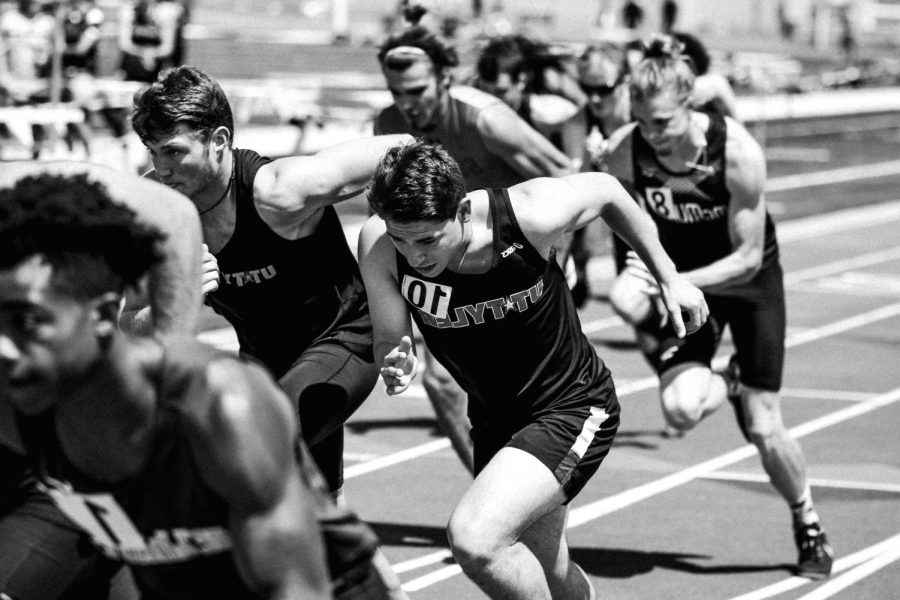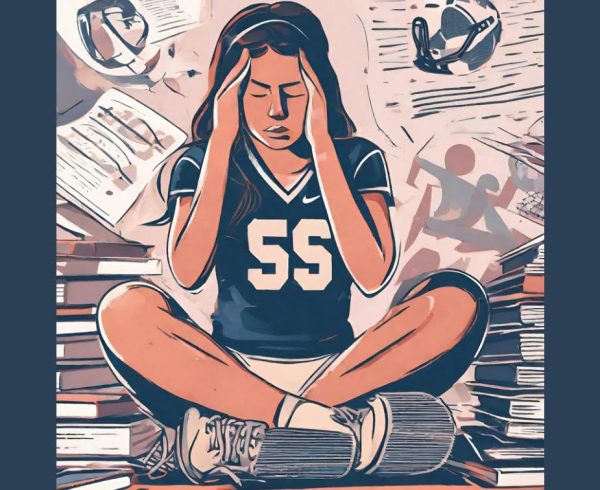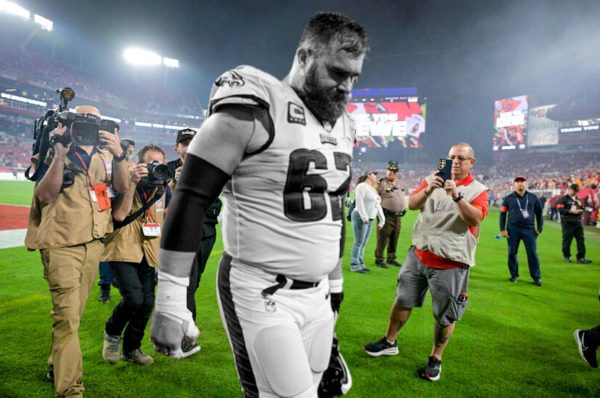Mental & Physical Health in Athletes: The Correlation
This is especially problematic for athletes, because after the minimal amount of sleep they get, they are expected to get up and do it all over again- the seven hours of mental exhaustion and then the two to three hours of both mental and physical exhaustion.
We’ve heard it hundreds of times- through social media, our friends, and from guest speakers who come to our school. Having good mental health is important in everyone’s life, and if you feel like your own mental health is going downhill, you have to reach out to someone.
This could be an adult you trust like a parent or teacher, or a therapist, or a mental health hotline. This concept certainly isn’t new to anybody… but what about athletes? Why is it especially hard for athletes to maintain good mental health?
The NCAA conducted a study on mental health, and found that 38% of women and 28% of men in school sports felt mentally exhausted constantly. The represented percentages might not seem like a lot, but putting it into perspective, this number is still more than it should be.
However, as an athlete myself, I’ve encountered more athletes that do seem to feel mentally exhausted than not. The reason for this is almost always related to the extra pressure that is placed on a student athlete.
Think about it- seven hours of school, then two to three hours of the sport itself, then on top of that they have to find time to do the homework that is assigned to them.
Then they are also expected to eat at some point and go to bed at a reasonable time- something that isn’t common given that most of the time, while talking to my friends, I find that most of them get around four to seven hours of sleep.
This is not sufficient for a student athlete, given that the recommended amount of sleep for average students aged 13-18 years is eight to ten hours, according to The American Academy of Sleep Medicine.
This is especially problematic for athletes, because after the minimal amount of sleep they get, they are expected to get up and do it all over again- the seven hours of mental exhaustion and then the two to three hours of both mental and physical exhaustion.
This is why we often hear about student athletes getting burnt out during their sports seasons. Burnout, according to the NCAA, is caused by “too much training stress coupled with too little recovery.”
To further back up my claims, the NCAA also says, “Training stress can come from a variety of sources on and off the field, such as physical, travel, time, academic or social demands.”
There are only 24 hours in a day, a difficult amount of time for athletes to maintain the balance of all of this. The worst part is that it is not up to an athlete to decide their schedule. School is required, and when one signs up for a school sport, showing up to a certain amount of practices is also required.
So, essentially, there is usually no cure for mental health decline in athletes except for one thing… taking a break.
This is a difficult concept for athletes to grasp, speaking from experience. Taking a break from a sport can be a stressful idea. What if you lose all of your physical progress? Well, the fact of the matter is that as an athlete, metal health is just as important as physical health.
If one is not physically well in their sport, (or, injured) they take a break and take that time to heal. But there seems to be this idea that mental health for athletes is not as important as physical health and doesn’t require breaks.
Having bad mental health most often impacts physical health, though. The CDC verifies this with an example: “depression increases the risk for many types of physical health problems, particularly long-lasting conditions like diabetes, heart disease, and stroke.”
Most coaches are understanding when an athlete needs a break. So, if you are a mentally struggling athlete and are afraid to take a break, trust me— do it. You will feel so much better in the long run. Even if your coach doesn’t understand and doesn’t want you out of your sport, take the break anyway.
In the end, you know what is best for yourself, and speaking from experience, taking a break from a sport can be so beneficial and refreshing.
I used to run all three seasons in my freshmen and sophomore years- cross country, winter track, and spring track. The mental and physical demand got to be too much, so I did swimming in the winter this year instead. Since my physical health is better, my mental health has been impacted positively, in return. (It goes both ways) This has made me more motivated and better able to manage my time.
For most people struggling mentally, taking a complete break would be more beneficial than doing another, less physically demanding sport instead as I have done. I was lucky enough to have better personal circumstances.
My good friend, Brianna Panchal, is also taking a break from running for the winter season, but she is not doing another sport. I asked her how taking a break from her sport has impacted her mental health. “I feel like it’s definitely made it better because I feel like coming back will be a fresh start and give me something to look forward to.” She also mentioned that taking a break from her sport is helping her with motivation and regaining her passion for running.
It is important to know, overall, that mental health in athletes is just as important to focus on as physical health. So, if you are a mentally struggling athlete, reach out and find a solution with whoever you talk to. Do it for yourself- for not just your mental health, but your physical health, before it declines to the point of no return.











